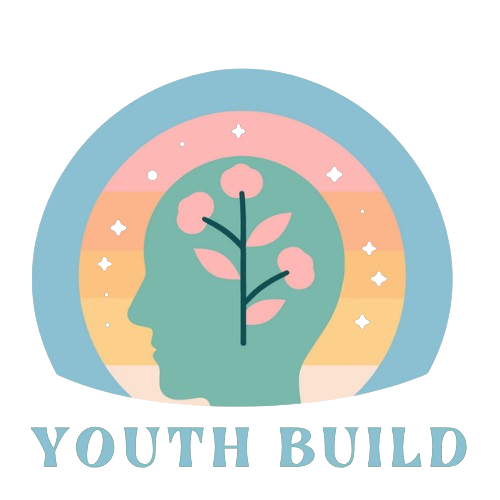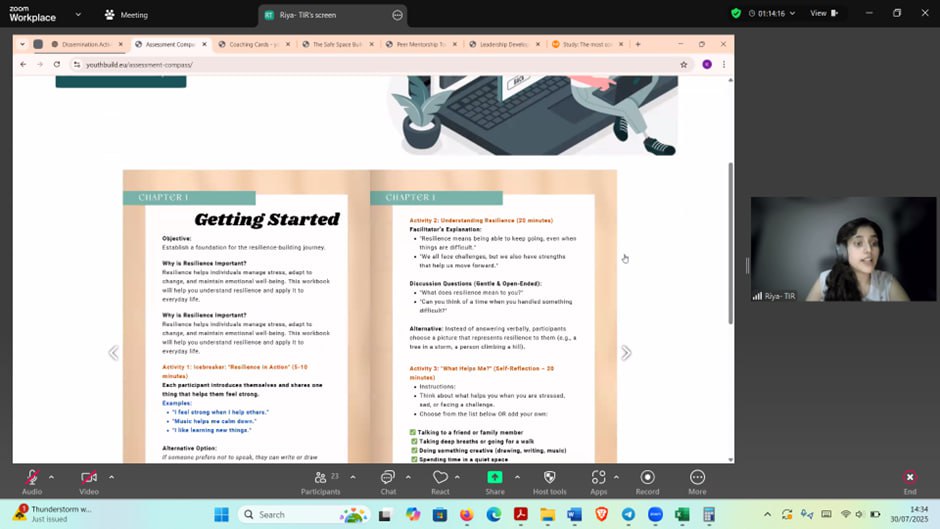Blog
Explore more about Youth Build

Second YOUTH BUILD Webinar – Building Psychosocial Resilience Together

On 12 August, youth workers, trainers, educators, psychologists and young participants from across Europe joined the Second Webinar of the YOUTH BUILD Erasmus+ and You-Health project. This session centered around understanding psychosocial resilience, normalising mental health conversations, and introducing the ASSESS–BUILD–LEAD framework that guides the project.
The session was interactive, practical and deeply reflective, creating a safe space for participants to share real challenges faced by youth in different European contexts.
Goals of the Webinar
The session focused on the following key objectives:
✔ Discovering the YOUTH BUILD and You-Health project and its mission to empower vulnerable youth
✔ Understanding psychosocial resilience — what it is, why it matters, and how it can be strengthened
✔ Normalising conversations about mental health in youth work, schools and communities
✔ Teaching young people how to recognise safe adults and ask for help when needed
✔ Opening a real discussion on the challenges youth face today — stress, loneliness, discrimination, anxiety, digital pressure
✔ Explaining the ASSESS–BUILD–LEAD framework used across the project
ASSESS – BUILD – LEAD Framework
During the webinar, participants learned how the YOUTH BUILD project supports resilience using a structured three-step approach:
1. ASSESS
Help youth understand themselves.
• Introduction to the Resilience Assessment Compass (self-assessment tool)
• Identifying emotional, social, coping and cognitive strengths and needs
• Creating safe, non-judgmental reflection spaces
2. BUILD
Develop resilience skills and coping strategies.
• Use of Strengths-Based Coaching Cards to support emotional expression, problem-solving and optimism
• Stress-relief tools: breathing exercises, grounding techniques, journaling and peer sharing
• Encouraging positive identity, self-awareness and practical skill building
3. LEAD
Empower youth to take action, support others and lead change.
• Youth leadership, advocacy and peer-support roles
• Creating spaces where young people contribute actively, not just participate passively
• Encouraging responsibility, decision-making and community impact
Understanding Psychosocial Resilience
Trainers explored resilience as a combination of:
Internal strengths – emotional regulation, confidence, problem-solving
External supports – safe adults, peer connections, community and belonging
Healthy coping strategies – instead of avoidance, aggression or isolation
Participants reflected on resilience using real scenarios from their work with youth facing unemployment, migration, disability, trauma or social exclusion.
More than 25 trainers and youth workers from Estonia, Croatia, Poland, Germany and other EU countries joined the webinar, along with several youth learners. The atmosphere was open, supportive and solution-focused.

This project has been funded by the Erasmus+ Programme of the European Union (Project N. 2023-2-EE01-KA210-YOU-000168327).
The European Commission support for the production of this publication does not constitute an endorsement of the contents which reflects the views only of the authors, and the Commission cannot be held responsible for any use which may be made of the information contained therein.
